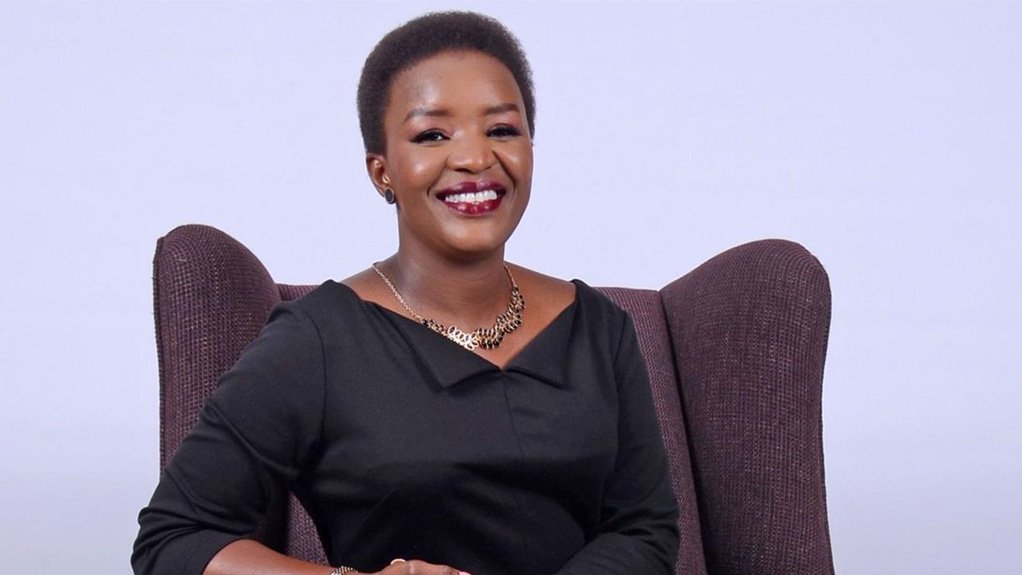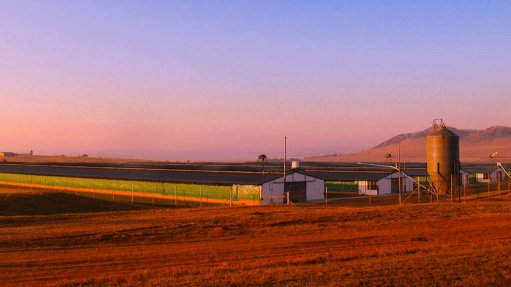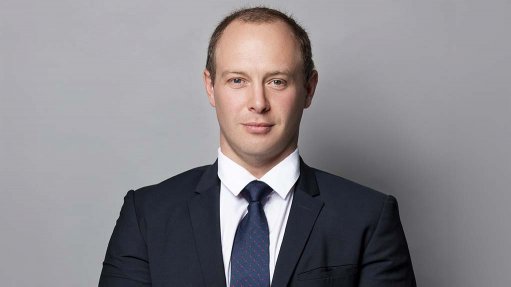Too early to say if proposed SOE holding company will succeed – Mavuso
With Cabinet having recently approved the publication of the draft National State Enterprises Bill for public comment, Business Leadership South Africa (BLSA) CEO Busi Mavuso says it contains “little that will inspire confidence in business”.
The Bill, which was published for public comment on September 18, seeks to reconstitute State-owned enterprises (SOEs) such as Eskom and Transnet, by consolidating the State’s shareholdings and having one holding company for oversight.
Mavuso, in her latest weekly newsletter, emphasises that the role of SOEs is critical to a better economic outlook for the country, particularly as the National Treasury struggles to keep spending in check without running up a bigger debt bill in a high interest rate environment.
In principle, she says, a holding company structure makes sense, with a few good examples in public sectors around the world, including Kazakhstan and Singapore, adding that the private sector also uses the same principle of a conglomerate to manage assets effectively.
“A State holding company that is fully empowered to do what is necessary to turn around and manage enterprises, including bringing in private shareholders or even disposing of businesses that perform suboptimally, is welcome.
“Such an entity could ensure proper commercial principles are applied in running the SOEs, while the rest of government concerned itself with policy and regulatory issues,” she explains.
To achieve that, however, the holding company will need a level of independence and be allowed to make operating decisions that ensure the financial performance of SOEs.
Mavuso highlights that such a holding company will need to have budgetary autonomy and a board of accomplished professionals with extensive corporate expertise – not political cronies.
In turn, it must have authority over the boards it appoints to manage the SOEs and ensure delivery, as well as report to a suitable government department with a line of accountability to Parliament, she adds.
Elsewhere in the world, SOE holding companies are important sources of revenue for governments and deliver dividends that help fund activities every year.
While South Africa has seen some dividend flows, particularly from telecommunications company Telkom, it is too rare an exception and is insufficient to counter the massive drains on the fiscus caused by Eskom and Transnet.
Mavuso says the draft legislation does provide for the holding company to exercise oversight of SOEs, as well as the corporatisation of SOEs that are not yet legal companies in line with the Companies Act.
However, one disappointing factor is that the legislation envisages the holding company being the sole or majority shareholder, leaving out the option of minority ownership, which may sometimes be optimal, as the Telkom example illustrates.
Mavuso adds that good examples of holding companies in the rest of the world are able to trade their interests in companies to realise the most value for the State.
The legislation itself does not make it clear that the new holding company will achieve the kinds of ends that are desirable. Mavuso says a great deal will depend on who is appointed to the board of the new company, as well as the executive management team.
The legislation positions the President as the sole representative of the company, rather than any particular Minister such as the Finance Minister, which would have positioned financial sustainability as a key concern of the holding company.
Mavuso points out that the only thing business can take from the legislation as tabled is that the new holding company might be a good thing, but it also might not, depending entirely on how it is implemented.
“Indeed, the worst fear is that it becomes yet another expensive white elephant that adds no value.”
BLSA’s position is that the growth imperative now needs to be all-consuming for government.
There are reasons the country has lagged behind in recovering from Covid-19 including that the legacy of State capture and corruption remains undealt with.
“We need decisive action to turn around our logistics system, in particular, and to accelerate the progress in electricity reform. The private sector is obviously the best way to achieve these – well-regulated and in an appropriate policy environment.
“Of course, I would support the expansion of grants to support the poor if it can be done sustainably. At times of strong fiscal performance, like before the financial crisis in 2008, the State did massively expand welfare spending, without damaging business confidence,” Mavuso states, adding that, however, the country is not in a time like that.
She explains that now would be the wrong moment to expand spending, as it would compound negative sentiment and condemn South Africa to an even worse growth outlook.
“Business and government need to unite instead to deliver the best growth outlook possible, to enable the spending needed,” Mavuso concludes.
Comments
Press Office
Announcements
What's On
Subscribe to improve your user experience...
Option 1 (equivalent of R125 a month):
Receive a weekly copy of Creamer Media's Engineering News & Mining Weekly magazine
(print copy for those in South Africa and e-magazine for those outside of South Africa)
Receive daily email newsletters
Access to full search results
Access archive of magazine back copies
Access to Projects in Progress
Access to ONE Research Report of your choice in PDF format
Option 2 (equivalent of R375 a month):
All benefits from Option 1
PLUS
Access to Creamer Media's Research Channel Africa for ALL Research Reports, in PDF format, on various industrial and mining sectors
including Electricity; Water; Energy Transition; Hydrogen; Roads, Rail and Ports; Coal; Gold; Platinum; Battery Metals; etc.
Already a subscriber?
Forgotten your password?
Receive weekly copy of Creamer Media's Engineering News & Mining Weekly magazine (print copy for those in South Africa and e-magazine for those outside of South Africa)
➕
Recieve daily email newsletters
➕
Access to full search results
➕
Access archive of magazine back copies
➕
Access to Projects in Progress
➕
Access to ONE Research Report of your choice in PDF format
RESEARCH CHANNEL AFRICA
R4500 (equivalent of R375 a month)
SUBSCRIBEAll benefits from Option 1
➕
Access to Creamer Media's Research Channel Africa for ALL Research Reports on various industrial and mining sectors, in PDF format, including on:
Electricity
➕
Water
➕
Energy Transition
➕
Hydrogen
➕
Roads, Rail and Ports
➕
Coal
➕
Gold
➕
Platinum
➕
Battery Metals
➕
etc.
Receive all benefits from Option 1 or Option 2 delivered to numerous people at your company
➕
Multiple User names and Passwords for simultaneous log-ins
➕
Intranet integration access to all in your organisation





















